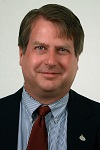From Poly Sci Major To Making Million Dollar Decisions

A long time ago in a galaxy far, far away, I graduated from college with a bachelor’s degree in political science. I had studied the workings of Congress, government agencies, foreign governments, and had taken a couple of courses on law where I learned to read court decisions and contracts. I spent a semester working as an intern for a South Carolina congressman. I was ready to start a career, but I wasn’t certain where.
On Starting Small
My dream of actually getting paid to work on Capitol Hill fizzled out. I worked in banking for a while, but eventually moved back to my home state to start over. I was dating a girl who lived in a larger city a couple of hours away from my home town. I wanted to live there.
My girlfriend's aunt was a supervisor at the local branch of CNA Insurance. When an employee in the mail and supply department took maternity leave, she got me hired as a temporary substitute. That position became permanent when the other employee in the department moved away.
A few weeks later, the underwriting department lost a full-time assistant and decided to replace her with three part-timers. I applied for and got one of the positions. My net pay went down (fewer hours), but my foot was in the door. That job became full-time nine months later, two weeks before my wedding.
On Staying Educated
After years of clerical jobs, I had the opportunity to move into a profession when the company posted openings for an underwriting training program. I applied for and got one of the positions. That started a year-long educational process filled with study, classes at CNA’s Chicago headquarters, and field travel as I began to really learn the insurance business.
When that year ended, I thought I’d had a full insurance education. In reality, my education started when I actually began underwriting.
Over the next several years, I learned:
- About a wide variety of businesses, from auto parts stores, to contractors digging building foundations and nailing on roofs, to scrap recyclers, to marinas, to swimming pool installers.
- What risks their employees take every day when they show up for work.
- How to prevent injuries, how to prevent fires, and how a building should be constructed to contain the fires that start.
- How to work with all kinds of people, from my colleagues within the company to the agents who sold its products.
I met some of the people I was insuring, visited their job sites, toured their factories, and learned their business languages. I studied complicated financial arrangements used for calculating premiums in the hundreds of thousands of dollars, arrangements that help businesses better manage their cash flows. I evaluated the loss potential of buildings worth millions of dollars and fleets of 50 or more trucks. I negotiated amounts of insurance of $5 or even $10 million to cover potential lawsuits against businesses. I learned how to write simple changes to insurance contracts that covered mobile property, like construction equipment.
On Coming Full Circle
Eventually, I became the one training underwriter, and from there I went into a role answering technical questions for insurance agents. In this job, I have to understand how a government agency (the New York State Department of Financial Services) works and how a legislature (the New York State Assembly and Senate) works. I have to read and interpret contracts (aka insurance policies), and I have to read and interpret court opinions.
I have come full circle, using the knowledge and skills I developed studying political science in college.
On Opportunities in Insurance
Insurance is not simply selling someone automobile coverage for a cheap price, as television commercials would have you believe. Insurance is one or more complex legal documents (the policies) that can be customized to meet the particular needs of an individual household, business or organization. It is evaluating the potential for an organization to have accidents and estimating how much those accidents will cost. It is working with very upset people who have suffered an injury or damage to their property or who are being sued. It is applying the terms of the policy objectively and calculating a fair payment for the person who suffered the loss. It’s being empathetic and compassionate, and sometimes it’s being firm. And it’s never, ever boring.
No two accounts are the same. You may insure outdoor concerts, the construction of skyscrapers, a village government, an online store (they need insurance against getting hacked), or a married couple with three kids living in a four-bedroom colonial in the suburbs. The variety is endless, the potential situations infinite, and the challenges and the learning never stop.
And if you’re a recent college grad with a political science degree that you don’t know how to use? So much the better.
 Tim Dodge, AU, ARM, CPCU, is the Assistant Vice-President of Research for Big I New York, a non-profit trade association located near Syracuse, New York. Big I New York represents the interests of 1,800 independent insurance agencies and brokerages throughout the state.
Tim Dodge, AU, ARM, CPCU, is the Assistant Vice-President of Research for Big I New York, a non-profit trade association located near Syracuse, New York. Big I New York represents the interests of 1,800 independent insurance agencies and brokerages throughout the state.
